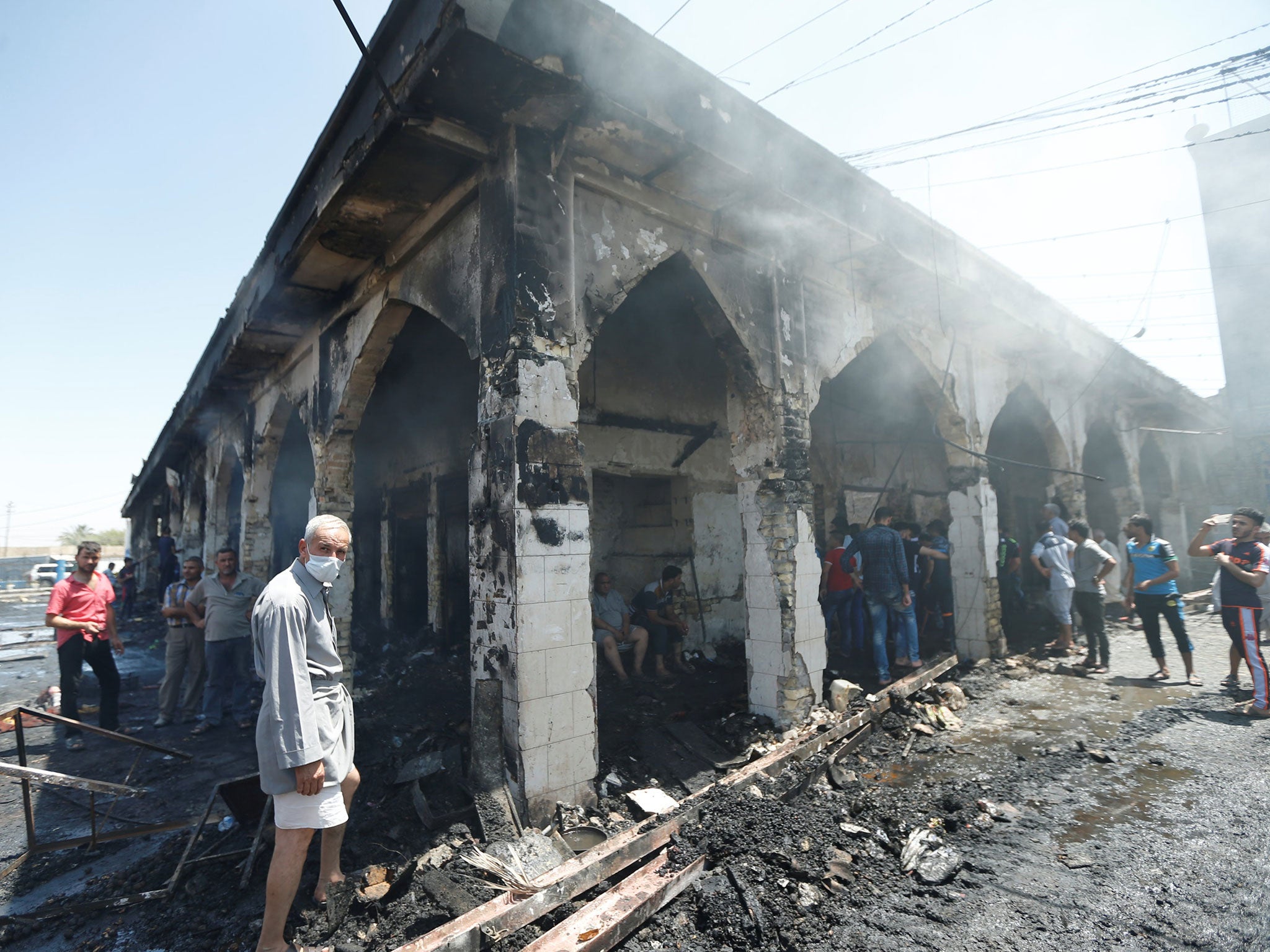Isis claims fresh bomb attack at Shia holy site north of Baghdad
Death toll rises to at least 35

At least 35 people have been killed and over 60 wounded in a triple suicide attack by Isis at a Shia holy site.
Several gunmen are alleged to have opened fire on Shia Muslims who were celebrating Eid al-Fitr, marking the end of the month of Ramadan, at a mausoleum in Balad, 58 miles north of Baghdad.
The coordinated attacks at the site began late on Thursday night, according to Iraqi security services.
According to Reuters, one bomber detonated his explosives belt near to police who had been guarding the entrance to the Mausoleum of Sayid Mohammed bin Ali al-Hadi.
Then a second bomber went into the shrine as gunmen opened fire on other security personnel.
The man blew himself up in the crowd at the shrine.
Meanwhile, the mausoleum came under sustained rocket fire for which Isis has also claimed responsibility.
A third bomber attempting to enter the site was shot by security guards before he was able to detonate his explosives belt.
Pictures on social media show extensive damage to the shrine, while videos showed a large fire burning close to the entrance of the site.
The attack comes just two days after Baghdad suffered its deadliest explosion since 2003 after Isis attacked a predominantly Shia area of the city, killing 292 people with a bomb hidden in the back of a refrigeration van.
Footage of the suicide attacks on a Shi'a mausoleum in #Balad district. #Iraq pic.twitter.com/sZZoznm8ND
— Mustafa Al-Khaqani (@Khaqani_M) July 8, 2016
Isis considers the Shia Muslim sect heretical, and has made its followers the focus of attacks against Muslims.
Shias were also the main victim of Isis’ worst ever terror attack in Iraq, when gunmen massacred 670 prisoners in Badush in 2014.
Isis has lost significant ground since sweeping out of Iraq’s Sunni regions in 2014 and declaring its own “caliphate”.
Since US backed attacks have made concerted efforts to “destroy and degrade” the organisation this year, the militants have lost large areas surrounding their stronghold of Raqqa in Syria, and are under sustained pressure in Falluja in Iraq.
But despite the gains made against the group, Isis has shown it is still able to coordinate deadly attacks outside the territory it controls.
Subscribe to Independent Premium to bookmark this article
Want to bookmark your favourite articles and stories to read or reference later? Start your Independent Premium subscription today.

Join our commenting forum
Join thought-provoking conversations, follow other Independent readers and see their replies